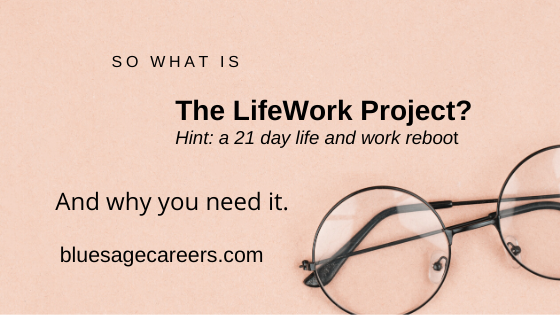Conventional wisdom says its best to stay at least 12-18 months in a job. At that point, you’ve survived the learning curve that comes with on-boarding and learning new procedures. You know your work team and probably passed your first evaluation. You have gotten through the ups and downs of a calendar year. Most likely, you now understand the culture and mission of the organization – for good or bad. You have developed relationships with co-workers, or not, which is a big red flag. You have a year of experience with your boss. Is he or she always a tyrant? Or just when stress and deadlines prevail? There’s value in reaching the year mark.
However, no benchmark works for everyone. Sometimes, an early reboot of the job search is warranted – even with just three to six months on the job. Only you can decide if it’s time to update your resume and begin the job search again.
Here are some strategies for coping when your dream job turns out to be a dud.
First, it’s important to dig deep into why you’re unhappy. Take some time to write down those things that you just can’t stand about your new job. Get really specific. Is it one person who seems to drag you down? Is the paper overload temporary or is it part of the company norm? Are you feeling isolated because you moved to a new city? Are you in a cubicle with no window? Take some time to think about why you were drawn to this job. What about it made you think it was your dream job? What are your great disappointments now?
Write it all down and sleep on it. The next day, take a look at your list. Is it still valid? Or do you immediately begin adding new items?
Second, consider the possibilities for change within your new job. Many times, new hires get the dregs of the job. As you gain the trust and confidence of your new employer, will your duties shift? Are there opportunities for promotion or even a lateral move to a slightly different position? As you become more familiar with the job, will you develop strategies for working faster or more efficiently? Is there a supervisor or someone in HR you can talk with to develop a strategy to change those parts of the job that are dragging you down?
Now that you have analyzed your situation, here are a few red flags that indicate it may be time to move on.
Your manager doesn’t support you. You’ve asked for additional opportunities or challenges to no avail. Maybe you met with your boss to talk about possible changes in your position or consulted HR about a lateral move and hit a dead end. You feel unsupported by your boss or the management team.
The old adage is really true. People leave bosses, not companies. Bad managers can make us more miserable than any other aspect of our jobs – including other co-workers or the actual work itself. A Gallup study of more than 7,000 U.S. adults found that 50% of people have left a job to get away from their manager at some point in their career.
There’s no path for advancement with the organization. You’re working your fingers to the bone, staying late to get things done and there’s no recognition for the good job. Maybe there’s someone in the position above you who’s never going to leave the company. Maybe it’s the boss’s nephew or son or daughter. Maybe it’s the employee who’s been there for years and everyone loves. It doesn’t matter. The reality is that you can’t move up because no one else is moving on.
The company is struggling. Maybe it’s not you but that the company is in real trouble. This causes stress in upper management which then pours down upon the heads of the worker bees. Watch out for signs such as budget cuts, contracting out work, failing to give regular raises, limited funds for upgrades in software and equiqment or continuing education, etc. If so, that’s a clue to update your resume. Now.
Your dream job is affecting your physical health. You may be suffering stress related symptoms such as digestive issues, back, neck or other muscle pain, TMJ, insomnia, headaches, fatigue, etc. The list is long. Check in with your doctor. If possible, take some days off to address your physical health and make a plan to deal with the job issue long term.
Your job is affecting your mental health. You find yourself really dreading Monday – more than just the normal Monday blues. Sundays feel like a bottomless pit of dread. Evenings after work are filled with numbing out with Netflix or an entire bottle of wine. You’re not communicating with – or you’re yelling at – your spouse and the kids. You find yourself thinking of ways to avoid going to work – sick days or invented crises.
Or you’re thinking about suicide. Yes, I said it. It happens. It’s time to find a counselor or doctor, talk it out, get some meds if needed, and make a change. No job is worth your mental health.
If you realize that your dream job is truly a dud, or even worse, a toxic waste dump, it’s time to move on. Recognize that disappointment and grief will be part of the process of moving on. You had such high hopes for this job. So let yourself feel all the feels – sadness, anger, disappointment, and all the others. – and then pick yourself up and make a plan.
Remember that sometimes an unexpected failure can turn out to be a positive. Failures can jolt you into new ways of things. Take the time to stop and think deeply about how the situation turned out. What changes can you make? What have you learned from this experience?
Think creatively about your future. Where can you go from here? What new skills have you learned in this job? What contacts have you made in your job that you can reach out to possibilities? Maybe this “dream job” was just a stepping stone to something even better.



































